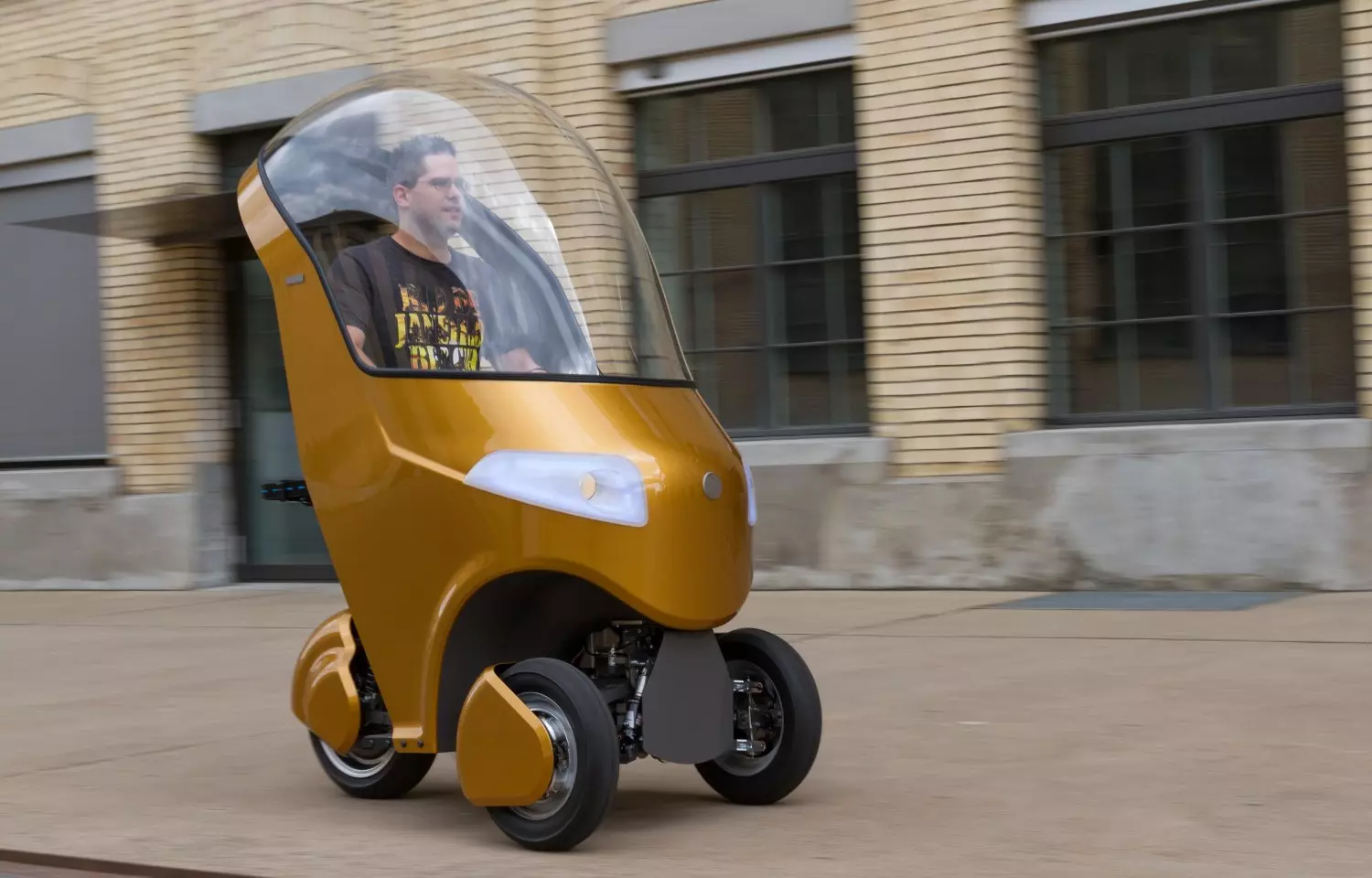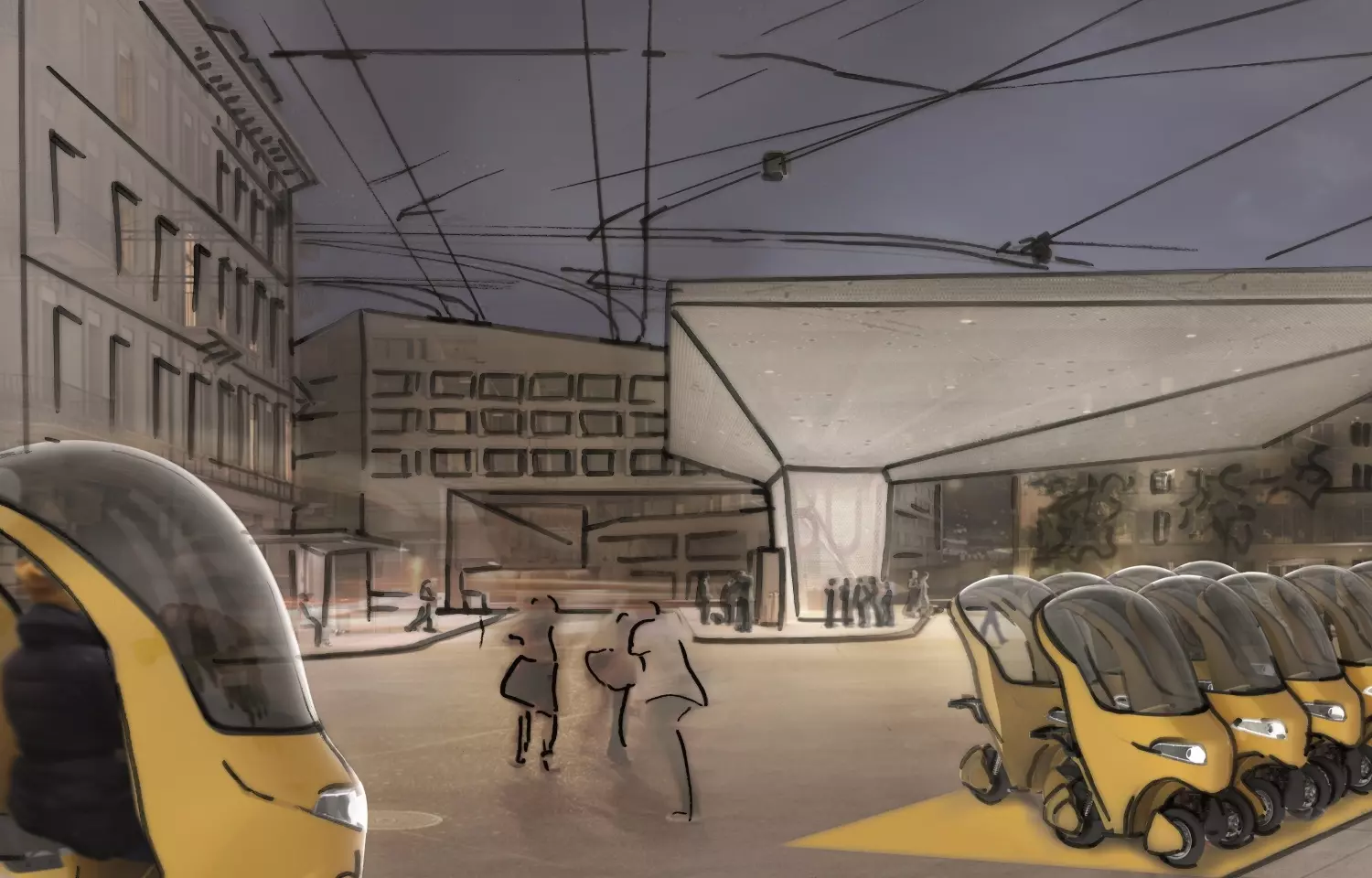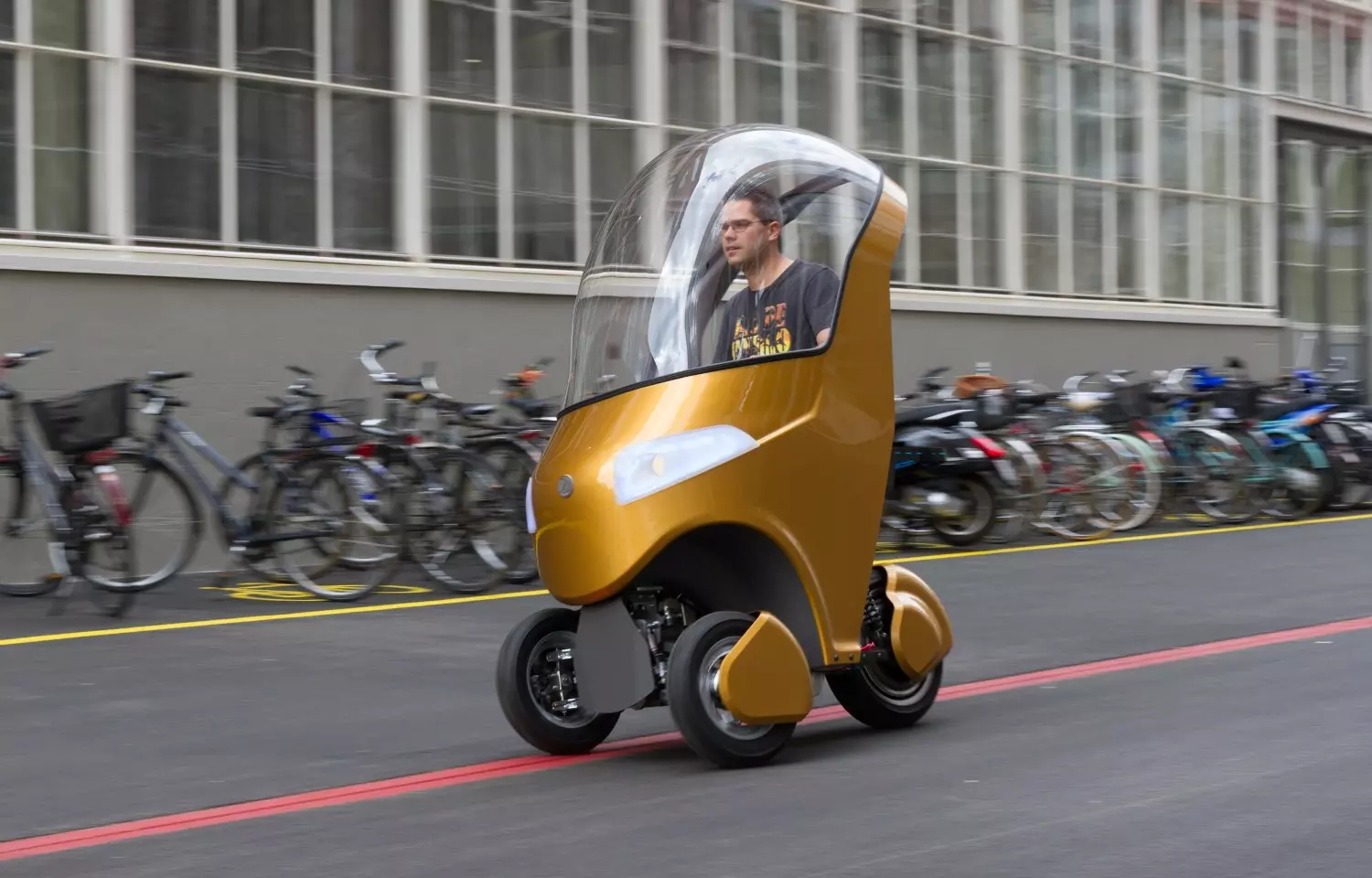BICAR
Compact, agile and environmentally friendly like a bicycle, and com-fortable, weather-proof and driven like an electric car – that sums up the BICAR. An interdisciplinary ZHAW research team developed the BICAR prototype and wants to build a test fleet.
In the future, we will use the BICAR to make our way from the train station to the office, carry those heavy shopping bags home or ride to a doctor’s appointment on a rainy day. That is the vision of the interdisciplinary research team at the ZHAW School of Engineering that developed the BICAR prototype. On 20 May 2015, potential sponsors and industry partners had their first opportunity to take a look at the finished prototype. Stand-out features are its golden body and the rounded windscreen mounted inside it, both of which ensure that drivers stay dry as they travel from A to B. There are three wheels under the chassis that together with the entire vehicle lean to the side on curves. Combined with the raised seat position of the driver, this ensures more safety in city traffic.
“Alternative mobility services are in demand that do not require users to give up their comfortable, individualised mobility. The solution is smart sharing options – and a change in mentality from ownership to usership.”
Adrian Burri, director of the Centre for Product and Process Devel-opment (ZPP)
Intuitive, ergonomic and compact
What makes the BICAR special is not just aesthetics and technology but also its mode of operation: The BICAR will not be parked at home in your garage because it is designed exclusively as a shared-mobility vehicle. The reasons for this are clear. The ever increasing demand for mobility faces a growing lack of space, fewer available raw materials and more political emission restrictions. Adrian Burri, director of the ZHAW Centre for Product and Process Development, works together with researchers from the other four institutes of Sustainable Development (INE), Mechanical Systems (IMES), Mechatronic Systems (IMS) and Materials and Process Engineering (IMPE), and students from the Transportation Systems programme on the BICAR. He explains: “Alternative mobility services are in demand that do not require users to give up their comfortable, individualised mobility. The solution is smart sharing options – and a change in mentality from ownership to usership.” The BICAR’s smart features include intuitive handling, ergonomics for different-sized people and a space-saving vehicle design. Up to eight BICARs can be parked on a normal parking space, offering providers of shared-mobility vehicles obvious benefits.
Adapted for urban settings
The BICAR is designed as an urban vehicle. “The BICAR combines the lower space and expense requirements of an electric bicycle with the functionality and convenience of an electric car – and thus fulfils the typical demands of urban mobility. It is compact, quiet, climate-friendly and weather-proof,” Adrian Burri declares. Its 20-kilometre range, speed of around 30 km/h and the efficient electric drive are also adapted to urban settings. The BICAR is ideally suited for commuters to cover that final stretch between the train station and home.
“The BICAR combines the lower space and expense requirements of an electric bicycle with the functionality and convenience of an electric car – and thus fulfils the typical demands of urban mobility. It is compact, quiet, climate-friendly and weather-proof.”
Adrian Burri, director of the Centre for Product and Process Devel-opment (ZPP)
From prototype to research platform
The BICAR represents more than just a prototype of a new vehicle, however. It serves as an open research platform where people can develop, test and put their new ideas and concepts for more sustainable urban mobility into practice. “We want the BICAR concept to continue to be developed and then be able to put a test fleet of 20 vehicles on the road starting in 2017,” comments Hans-Jörg Dennig, coordinator of the BICAR research platform. “We have numerous ideas on our research agenda, and companies from the areas of technology, mobility and urban planning are invited to contribute their ideas as well. Together we can profit from the experience we gain in the test phase.” The test fleet, including the necessary charging stations and infrastructure for the vehicle-sharing operation, will be operated in a city or on the private grounds of a large company. Setting up the test operation will cost around one million Swiss francs; partners and sponsors can participate in this project and make a significant contribution to sustainable mobility.
At a glance
Participating institutes and centres:
- Centre for Product and Process Development (ZPP)
- Institute of Sustainable Development (INE)
- Institute of Mechanical Systems (IMES)
- Institute of Mechatronic Systems (IMS)
- Institute of Materials and Process Engineering (IMPE)
Participating Bachelor's degree programme:
Funding: Specially financed project ZHAW School of Engineering
Project duration: 2014-2016 – Continuing: ZHAW-Spin-off Shareyourbicar.com


